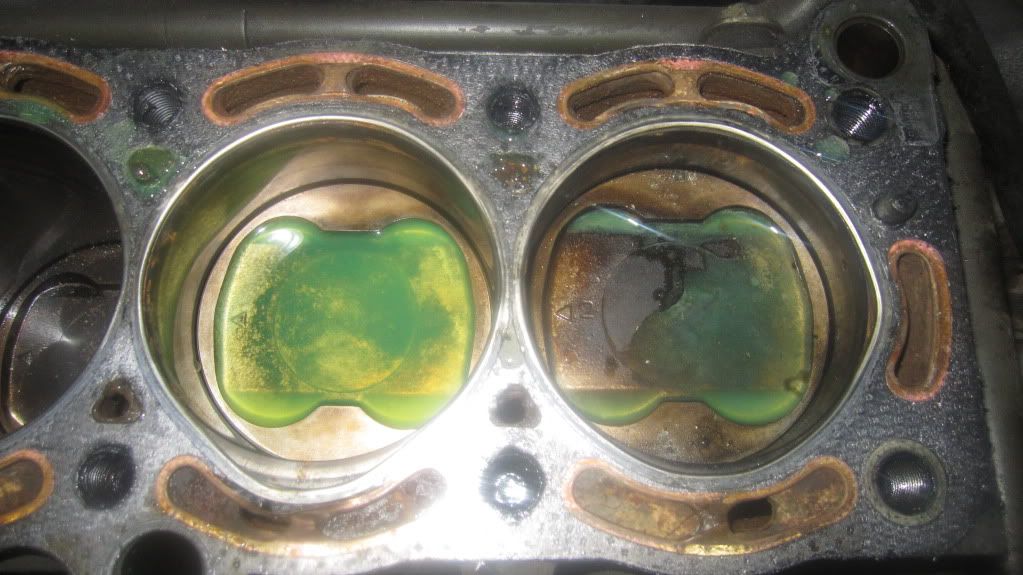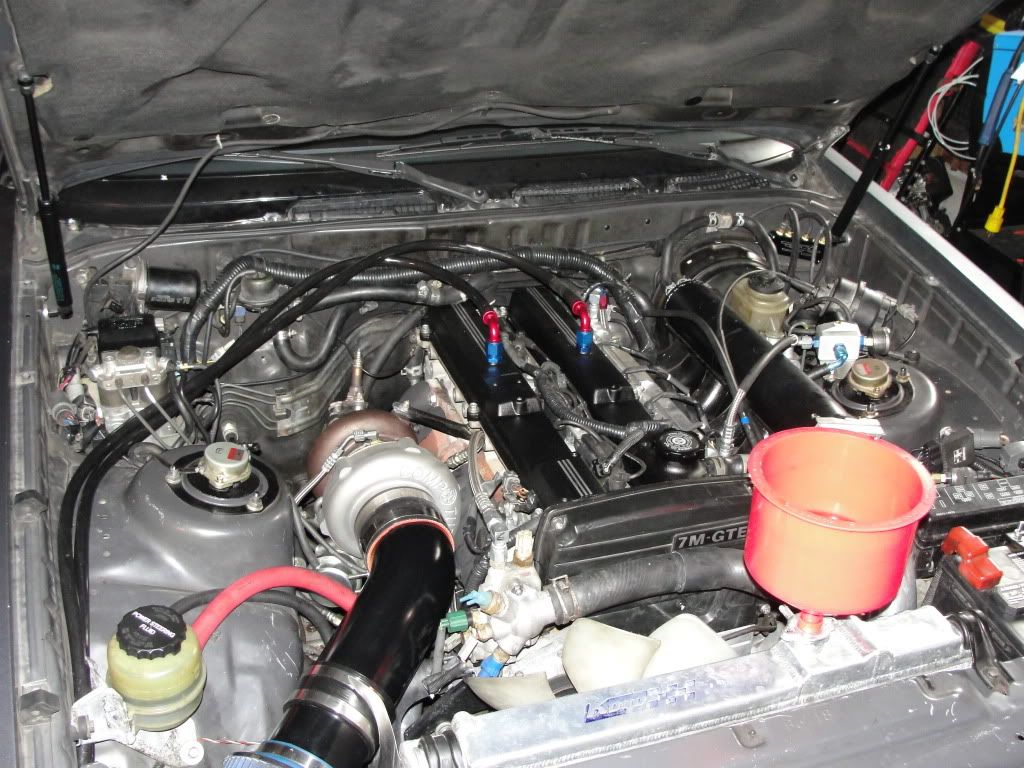Hey guys,
I posted up not too long ago because my car was overheating badly. I just changed the rad hoses, and installed a new radiator + cap and I'm still having problems. The car doesn't have a BHG, I've tested the fluids for exhaust gasses, the compression is perfect, and it was recently rebuilt with an HKS MHG and ARP's. I've replaced the upper and lower rad hoses, rad cap, radiator, thermostat, coolant temp. sender, flushed the system, burped it, and installed a new fan clutch. None of this has had any effect whatsoever on the overheating. Things I've noticed about it -
- It seems to take quite a while to overheat : at least a good 30min. of driving
- The radiator is always low on coolant, the overflow tank is always full
- As soon as I fill the radiator back up, the overflow sprays coolant everywhere as soon as it heats up
- The upper rad hose can be squeezed HARD and it holds pressure
- System doesn't seem to be building vacuum pressure or pulling coolant back into the rad when it cools off
- Car runs, drives, boosts, and pulls great
- Overheats the worst when the engine is under load, even the slightest bit of acceleration will make it peg the red, even on the highway
- My heat has stopped working
I'm thinking there's a connection between the heat not working and the car overheating. I didn't realize this as I haven't even attempted to turn the heat on in the car since I've installed the new turbo, but I do remember the heat working perfect before, and the car didn't overheat at all. My big concerns right now are that I REALLY don't want the car to overheat again, it's pegged the temp. gauge too many times as it is and I don't want to kill my new motor. I'm really curious if this could be the heater core or something perhaps? I just hope there's an easier way to test this out before I rip the dash apart to pull it out, because I really, really, really don't want to do that if at all possible. If i were to connect the two lines running to and from the heater core together, this wouldn't harm anything, and would tell me if this is my problem right? Thinking I may try that tomorrow, but I'd like reassurance that this entire idea is even plausible. Any ideas, suggestions, or whatever would be greatly appreciated. Sorry for the essay,
thanks.
Travis
I posted up not too long ago because my car was overheating badly. I just changed the rad hoses, and installed a new radiator + cap and I'm still having problems. The car doesn't have a BHG, I've tested the fluids for exhaust gasses, the compression is perfect, and it was recently rebuilt with an HKS MHG and ARP's. I've replaced the upper and lower rad hoses, rad cap, radiator, thermostat, coolant temp. sender, flushed the system, burped it, and installed a new fan clutch. None of this has had any effect whatsoever on the overheating. Things I've noticed about it -
- It seems to take quite a while to overheat : at least a good 30min. of driving
- The radiator is always low on coolant, the overflow tank is always full
- As soon as I fill the radiator back up, the overflow sprays coolant everywhere as soon as it heats up
- The upper rad hose can be squeezed HARD and it holds pressure
- System doesn't seem to be building vacuum pressure or pulling coolant back into the rad when it cools off
- Car runs, drives, boosts, and pulls great
- Overheats the worst when the engine is under load, even the slightest bit of acceleration will make it peg the red, even on the highway
- My heat has stopped working
I'm thinking there's a connection between the heat not working and the car overheating. I didn't realize this as I haven't even attempted to turn the heat on in the car since I've installed the new turbo, but I do remember the heat working perfect before, and the car didn't overheat at all. My big concerns right now are that I REALLY don't want the car to overheat again, it's pegged the temp. gauge too many times as it is and I don't want to kill my new motor. I'm really curious if this could be the heater core or something perhaps? I just hope there's an easier way to test this out before I rip the dash apart to pull it out, because I really, really, really don't want to do that if at all possible. If i were to connect the two lines running to and from the heater core together, this wouldn't harm anything, and would tell me if this is my problem right? Thinking I may try that tomorrow, but I'd like reassurance that this entire idea is even plausible. Any ideas, suggestions, or whatever would be greatly appreciated. Sorry for the essay,
thanks.
Travis


